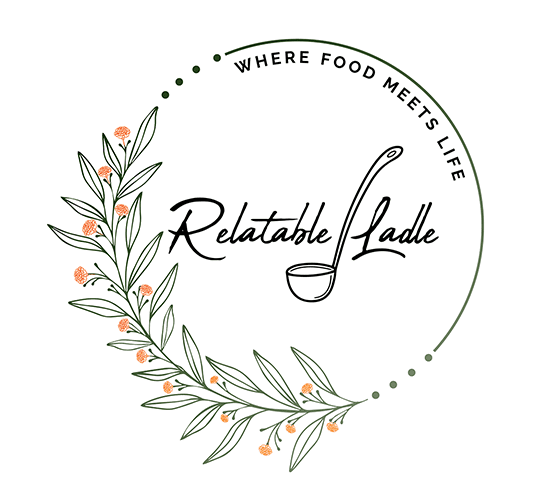Parenting with trauma is tough. Really tough. I recall holding our firstborn in my arms, rocking him to sleep, and feeling deeply disturbed by a call from both of our narcissistic mothers. Each conversation was riddled with accusations that ranged from lawn care to demands they felt were necessary regarding their grandchild.
I felt myself crumble, and my face fell stoic. I was emotionally unavailable while I dealt with the enigmatic attitudes of our parents that we now know today as narcissistic and borderline personality disorders.
Once I was able to find a label for what we were experiencing, I convinced Adam that we should go to therapy. Within the first few weeks (even sessions), it became clear we were dealing with abusive behaviors for most of our lives.
These events occurred while we were trying to fulfill our roles as first-time parents. I wish I could tell you my sheer guilt when I look back. It is a complex journey, but I can tell you that our children will not be part of this generational cycle of trauma. With the awareness we have and the healing we are committing to, a brighter future is ahead for our little family.
Introduction to Parenting with Trauma
Parenting with trauma can be a journey fraught with challenges and abundant opportunities for emotional recovery and growth. Healing from trauma and even developing awareness of its effects can have a profound impact on supportive parenting practices and the parent-child relationship.
Navigating the complexities of mental health in parenting can be less arduous by integrating trauma-informed strategies. This approach pioneers a safe parenting environment where both the parent and child can thrive.
Understanding Trauma and Its Effects
What exactly is trauma? The American Psychological Association defines trauma as deep emotional responses to highly stressful or harrowing events that shatter one’s sense of security, which leads to feelings of helplessness and vulnerability. It can originate from childhood trauma, accidents, or any life-changing negative experience.
Trauma often leads to issues with emotional regulation, depression, anxiety, and PTSD. These mental health challenges have significant implications for parenting, such as affecting the ability to provide a:
- A safe parenting environment (including emotional safety);
- A positive parent-child relationship and
- To practice supportive parenting.
Awareness of and addressing these issues is essential for the parent and child’s psychological well-being.

The Importance of Recognizing Trauma in Parents
For parents burdened by past experiences, the first step is recognizing that trauma is present. Not only does that begin the healing process, but it also fosters a nurturing and trauma-informed parenting approach.
Parents can unlock the potential to forge a supportive parenting dynamic where emotional regulation, resilience in parenting, and psychological health are prioritized.
Imagine crafting a legacy of healed relationships and emotional fortitude for coming generations by recognizing trauma and taking steps to recover.
Therapeutic Strategies for Managing Personal Trauma as a Parent
If you are parenting with trauma, you can harness a unique strength: providing a nurturing environment for their children.
To significantly ease the process of healing, here are four tips:
- Therapy equips parents with coping mechanisms to manage challenges that can appear in the parent-child relationship. This approach will improve emotional regulation and psychological well-being
- Supportive parenting networks and trauma awareness resources are pivotal in fostering resilience in parenting and establishing a community.
- Trauma-informed parenting workshops elucidate coping mechanisms while offering insights into trauma recovery.
- Ensuring a safe parenting environment, where open discussions about feelings and experiences are encouraged to provide parents and children with mutual understanding and support. Validating your children’s feelings is essential to fostering a positive connection.
Creating a Safe Emotional Space for Your Child
A safe and nurturing environment is not only physically safe but also emotionally safe. Parents can foster trust and open communication by employing coping mechanisms and emotional regulation strategies.
Meaningful dialogues will show children that their emotional landscapes do matter. This reflective practice promotes problem-solving, enhances daily interactions, and strengthens the bond. It champions resilience, introspection, and adaptation. Of course, this is more complicated to implement. There must be mutual respect, empathy, and patience, with an intention to make interactions a step towards collective healing.
Self-Care and Healing for Parents
Self-care is vital when you are parenting with trauma. Parenting even without trauma is HARD, complicated, and emotional. Before taking care of your children, you need to be strong enough to execute, which means taking care of yourself. Self-care demonstrates to children the importance of prioritizing one’s mental health in parenting, which instills resilience.
Beyond therapy and support networks, the below eight self-care practices or tips will help prioritize emotional healing:
- Set Boundaries: It is essential to know and communicate your limits to manage stress and energy levels for a more positive environment.
- Practice Mindfulness: Meditation, deep breathing, or yoga can help you respond to your children’s needs calmly and thoughtfully instead of reacting impulsively due to stress.
- Self-Compassion: Trauma responses are likely to affect your behavior, and difficult moments are bound to happen even without trauma. Acknowledgment and acceptance of where you are in your healing process can reduce feelings of guilt or inadequacy.
- Routine and Structure: A predictable routine for your family can create a sense of stability and security, which can be soothing for trauma symptom flare-ups.
- Healthy Lifestyle: Eating well, exercising, and getting enough sleep are critical to managing stress and physical and emotional well-being.
- Creative Outlets: Activities like writing, painting, or other crafts can help you express your feelings, relieve stress, and provide valuable opportunities to connect with your children positively.
- Stay Informed: Educating yourself about trauma and its effects can also empower you to make informed decisions about your family’s needs, identify triggers, and recognize patterns in behavior.
- Plan for Triggers: Know what may trigger your trauma responses and plan ways to manage them. You could call a friend or family member on call or have a ‘safe space’ to retreat to.
Embracing the Journey Ahead
Parenting with trauma is a path toward emotional healing and mental health. It is both challenging and rewarding. Embracing this process requires resilience and the courage to seek professional support.
Recognizing the impact of trauma on the role of the caregiver can lead to significant steps toward creating a safe parenting environment that fosters psychological well-being. It heralds a transition from merely surviving to truly thriving as individuals and as families.
Through the resilience in parenting and the value of a trauma-sensitive environment, experiences can transform into sources of strength and inspiration.
Have you experienced Parenting with Trauma?
You’re not alone. Please drop us a comment below. If you want to learn more about certain trauma-related challenges like complex PTSD, check out our article here. If you want to learn about repressed trauma, check out this article.
Disclaimer: All content and information on this website including our recipes and blog articles is for informational and educational purposes only and does not constitute medical, psychological, or health advice (for that please always seek the help of a professional in these areas). We do not warrant that the information presented herein is free of any errors or omissions although we do our best to provide information backed by research.

